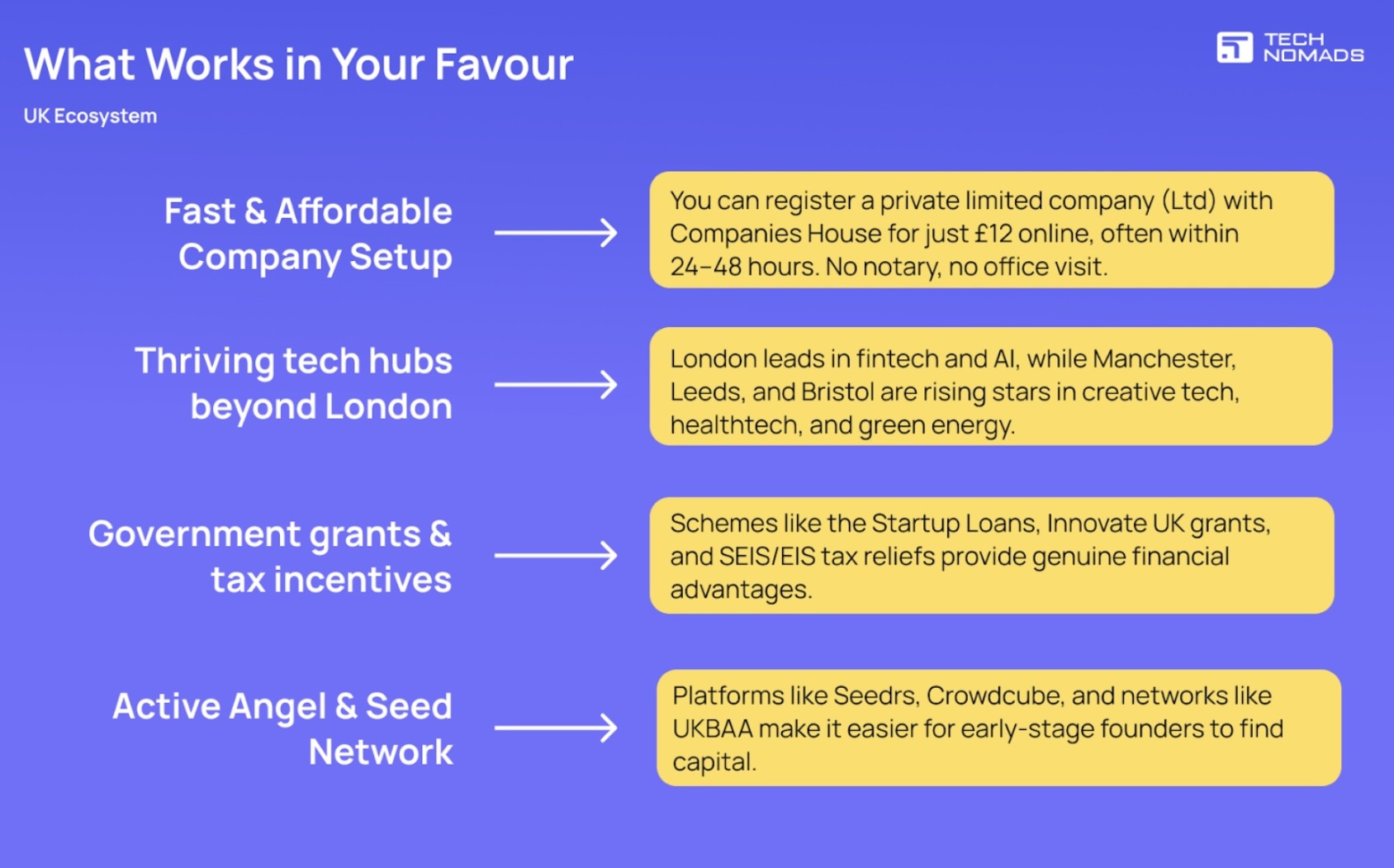
Seek more insights? Subscribe to our Monthly Newsletter
When it comes to launching a business or building a career in the UK, most conversations begin—and end—with the visa. Whether it’s a Skilled Worker visa, Innovator Founder visa, or Global Talent route, immigration paperwork often takes center stage. But what happens once you’re through the border?
The truth is, getting your visa is just the first hurdle. The real work begins after you've unpacked your bags and set up your laptop. From navigating the UK's unique business culture to building trust in new markets and accessing funding that often operates by different rules than in Silicon Valley or Berlin, success in the UK requires more than just legal status.
This article lifts the lid on what founders, freelancers, and international professionals need to know to thrive in the UK—beyond the visa. We’ll explore overlooked challenges, reveal insider strategies, and break down practical tools that can make or break your journey. Whether you're choosing between Manchester and London, wondering how to open a business bank account as a newcomer, or trying to figure out what “networking” actually means in a British context, this guide is for you.
Innovator Founder Visa Myths: What Immigration Lawyers Wish You Knew
Top Mistakes Tech Founders Make When Applying for the UK Innovator Founder Visa
Top 5 Types of Tech Founders Who Should Consider the UK Innovator Founder Visa
One of the first shocks many newcomers face isn’t legal—it’s financial. While the UK is rich with opportunity, it’s also home to high living costs and unexpected business expenses that can catch you off guard. From office space and council tax to mobile contracts and childcare, the details add up quickly—especially if you’ve just paid thousands for your visa and relocation.
The cost of living and setting up operations varies widely depending on location. Below is a practical comparison of monthly personal and business costs in four popular hubs for international talent:
How Friendly is the UK Startup Ecosystem
The UK positions itself as a startup-friendly nation—and in many ways, it delivers. With accessible company formation, a strong legal framework, and a growing number of accelerators and funding bodies, the foundation is solid. However, beneath the surface, many international founders find the ecosystem welcoming in structure, but nuanced in practice.
Let’s break it down:

.jpeg)
Once your company is off the ground, the next big hurdle is building a team and growing sustainably. On paper, the UK is an ideal place to hire: a skilled workforce, flexible contracts, and a remote work culture. But for international founders, there are hidden challenges that aren’t immediately obvious—from cultural differences in team dynamics to legal pitfalls and recruitment bottlenecks.
Hiring your first team members is one thing—scaling is another. As your team grows, so does the complexity:
What You Need to Know in Advance
The UK offers a structured environment for starting and growing a business, but there are important details that can be easily missed if you’re coming from abroad. Here is what you should be aware of before arriving or registering your company:
Opening a business bank account as a non-resident can be difficult. Digital banks such as Tide, Wise, and Revolut are often more flexible than traditional high street banks.
Need assistance with your relocation journey to the UK? Tech Nomads offers personalized strategies and full support in navigating the UK Visa processes.
Tech Nomads is a global mobility platform that provides services for international relocation. Established in 2018, Tech Nomads has a track record of successfully relocating talents and teams. Our expertise in adapting to regulatory changes ensures our clients’ satisfaction and success.
Tech Nomads Club is a curated global community for highly skilled professionals.
We host free, application-based events including expert panel talks, start-up pitch days, members-only networking, informal meetups, and fireside conversations with industry leaders.
Membership is free but selective — open to those building across borders and seeking meaningful growth through connection, knowledge, and community.
We also produce a regular podcast, sharing real stories, insights, and voices from inside the Club.
To explore your UK relocation options, you may:
Subscribe to our social media platforms to stay up-to-date on global mobility news and opportunities: